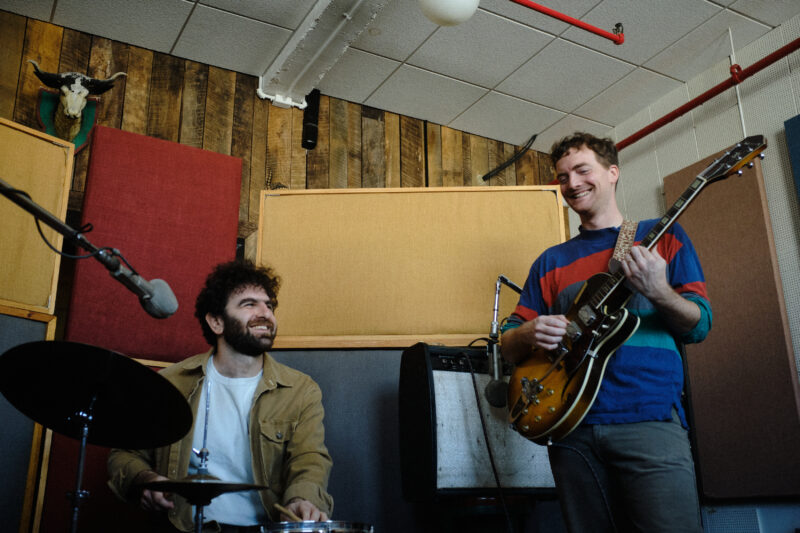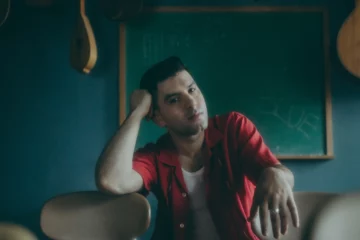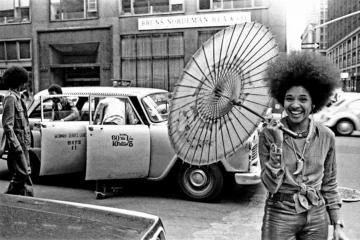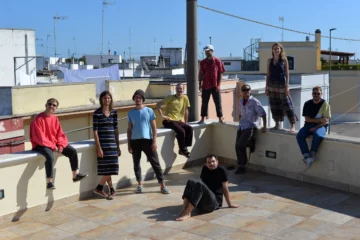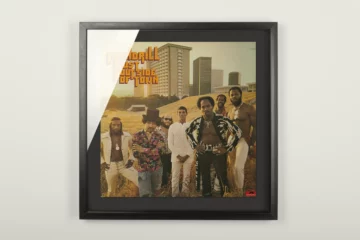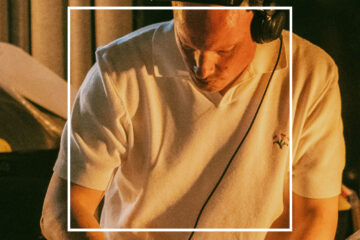The rich, reverberating sound of Homer Steinweiss’ voluminous backbeat, sometimes massive, sometimes relaxed, often both at the same time, almost everyone should have heard. However, only a minority might be aware of this fact. And yet: The 39-year-old drummer commands a distinctive play, not to be underestimated when it comes to explaining, why songs like the Amy Winehouse world hit »Rehab«, but also many albums by Sharon Jones & The Dap-Kings, Charles Bradley, the Menahan Street Band and Lee Fields are and remain so lastingly anchored in the auditory memory. Bands like The Kills and The Arc have already secured the collaboration of the dog and tennis enthusiast, as well as Lady Gaga, Bruno Mars, Scarlett Johansson, Miley Cyrus, Adele, Sheryl Crow, Liam Gallagher, St. Vincent, the Fleet Foxes, Dua Lipa or Rufus Wainwright – and again and again Mark Ronson, who also produced Winehouse’s international breakthrough »Back to Black« in 2006.
Also with singer/songwriter Paul Spring, whom Steinweiss met more than a decade ago on the farm in Minnesota through a family introduction and soon shared an intimate friendship, a working relationship developed, which in 2015 led to Steinweiss eventually producing the Spring’s solo album »Towards a Center«. In any case, the wavelengths matched: »We play together for about six years now«, Steinweiss tells us in a video phone conversation, leaning back in the seating area of his Brooklyn living room, and waits until the police siren outside on the street has quieted down a bit. The third member of the trio is bassist Joe Harrison. When Holy Hive’s debut album »Float Back To You« was released on Big Crown Records last year, the songs on it seemed as familiar and comforting on first listen as an unexpected reunion with a long-lost sandbox friend who puts his arm around your shoulder and buys you a beer at a bar far from home long after midnight. Their unagitated folk hybrid of country-folk, Philly-soul, quiet-storm and yacht-rock elements, Paul Spring’s floating, fragile falsetto vocals and their unashamedly catchy songwriting felt like a balm for the chafed nerves of many in the midst of the experiences of loneliness, isolation and deprivation that accompanied the pandemic.
The self-titled successor »Holy Hive«, once again on Big Crown Records, is now an album that continues the course that has been taken – which sounds roughly as if Bill Withers, Hall & Oates and The Band had recorded a shoegaze record, sometimes also as if Simon & Garfunkel had pursued a chillwave dream pop career; in other words: similar to the music of Khruangbin radiating a kind of introspective lightness -, but uses an even more intimate atmosphere. That they don’t want to be reduced to the formula Seventies soul revival is already indicated in the title of the first single release »I Don’t Envy Yesterdays«. Although their cover of Charlotte Gainsbourg’s »Deadly Valentine« brings to mind the early Pink Floyd of the Syd Barrett era, and although »All I’d Be Is Where You Are« would also pass as a Beatles ballad, Holy Hive is not concerned with serving nostalgic longings or a sophisticated retro style, but rather with reflecting the present experienced by them as contemporaries: »On this record we wanted to be more personal – we wanted to write more about life«, says Steinweiss.
According to Steinweiss, the songwriting in this case mainly took place as a ping-pong process between Spring and him: „Each of us brings ideas to the studio and we then see what can be made of them”. The studio in question is The Diamond Mine Studio in Long Island City, which Steinweiss has been running with Thomas Brenneck, Leon Michels and Nick Movshon since 2014 and where, in addition to many of the productions mentioned at the beginning, the albums of their joint bands El Michels Affair, The Mighty Imperials, The Expressions and Menahan Street Band have been recorded. Sometimes a tune was recorded there spontaneously, while others were fine-tuned in several sessions, Steinweiss looks back on the collaboration with Spring for »Holy Hive«. But also Harrison, who was commuting between Los Angeles and New York at that time, repeatedly contributed some facets and, as a virtuoso multi-instrumentalist, eventually recorded many parts in the studio, Steinweiss adds.
»I want to learn to play like Dave Grohl«, he said to his first drum teacher, whereupon the grunge-loving teenage Nirvana fan has been told, that that this requires a foundation, which was the study of the styles and skills coined by soul musicians like Jabo Starks and Al Jackson Jr., the drummers in the bands of Booker T. and James Brown. »I absorbed the classic soul drumming and thereof created my own patterns and style«, Steinweiss describes his path to the instrument. »I was certainly less affected by the pandemic than many others in the music business, because I don’t perform that much. So I could just stay in the studio and continue my work«, says Steinweiss, referring to the past 18 months. At the same time, he says he appreciates, that »the whole world has taken a pause, a timeout, a break to take a step back and think about why we are here – which made it more philosophical«. This corresponds aptly with the thoughtfulness of Holy Hive’s lyrics. And the band name Holy Hive? Originally the beginning of a line of lyrics, prefixed as an expression of played amazement to the following statement (»It got cold outside«), the name is not meant to have a deeper meaning, Steinweiss states with a smile: »We liked it and it has a nice ring to it, so we just went with it.«


